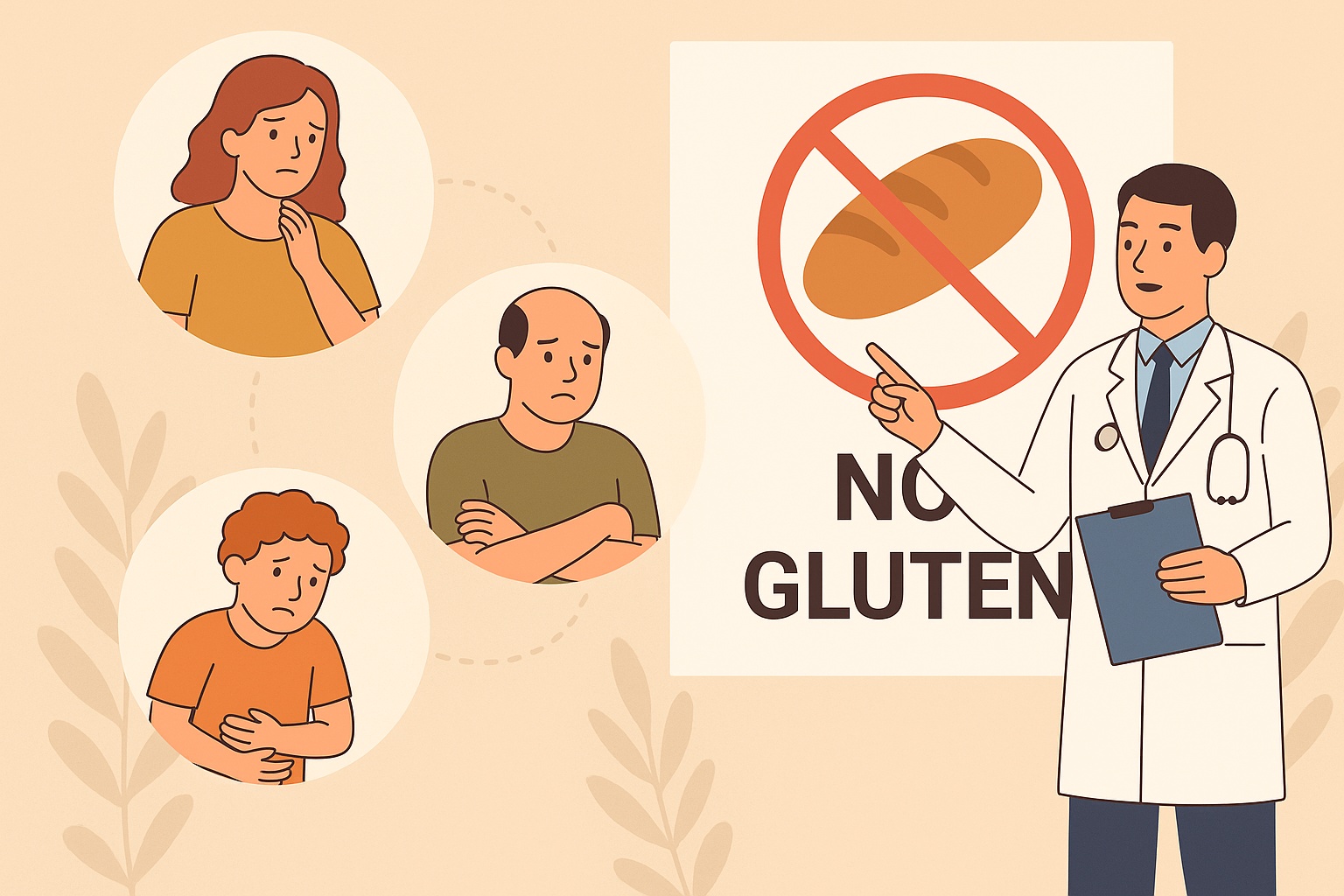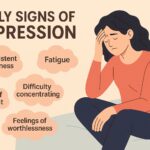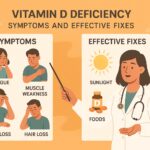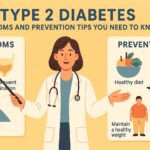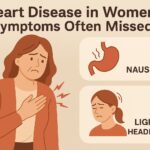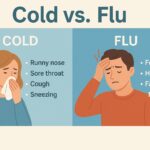Who Should Avoid Gluten — And What Happens If They Don’t?
Who should avoid gluten? In 2025, with gluten-free labels everywhere—from snacks to skincare—it’s a valid question. While gluten-free diets have become trendy, not everyone needs to cut out gluten. For some, avoiding it is critical. For others, it’s optional or even unnecessary. In this guide, we’ll explain who must avoid gluten for medical reasons, who might benefit from reducing it, and why it matters more than ever to get it right.
What Is Gluten?
Gluten is a protein found in wheat, barley, rye, and derivatives of these grains. It provides elasticity in bread and structure in baked goods. Gluten itself isn’t harmful for most people, but in certain individuals, it triggers serious health issues—ranging from digestive distress to autoimmune damage.
Who Should Avoid Gluten Completely?
The following groups should strictly avoid gluten due to health risks:
- People with celiac disease — An autoimmune disorder where gluten damages the small intestine lining. Even trace amounts can cause harm.
- Those with non-celiac gluten sensitivity — Individuals who experience bloating, fatigue, or brain fog after eating gluten but don’t test positive for celiac disease.
- People with wheat allergy — A true allergic reaction to wheat proteins, which may include gluten. Symptoms range from hives to anaphylaxis.
Understanding Celiac Disease
Celiac disease affects about 1 in 100 Americans. When someone with this condition consumes gluten, their immune system attacks the small intestine, impairing nutrient absorption. Symptoms include:
- Chronic diarrhea or constipation
- Weight loss
- Iron-deficiency anemia
- Fatigue
- Dermatitis herpetiformis (itchy skin rash)
- Infertility and neurological issues if untreated
Diagnosis involves blood tests and intestinal biopsy. Once diagnosed, lifelong gluten avoidance is non-negotiable.
What About Gluten Sensitivity?
Non-celiac gluten sensitivity (NCGS) is less understood but increasingly recognized. It affects people who test negative for celiac and wheat allergy but still experience symptoms like:
- Abdominal discomfort
- Headaches or migraines
- Joint pain
- Mood swings or depression
Symptoms improve when gluten is removed and return when reintroduced. Although no permanent intestinal damage occurs, the discomfort is real and can disrupt quality of life.
Who Might Consider Limiting Gluten?
Some people without a medical diagnosis report feeling better when they reduce gluten intake. These cases may include:
- Individuals with IBS (Irritable Bowel Syndrome) — Certain gluten-containing foods also have high FODMAPs, which can trigger IBS symptoms.
- People with autoimmune disorders — Those with Hashimoto’s, rheumatoid arthritis, or lupus sometimes report reduced inflammation on a gluten-free diet.
- Health-conscious individuals — Some reduce gluten to avoid processed carbs, not the protein itself.
However, removing gluten without medical need should be done thoughtfully. Whole grains with gluten contain valuable fiber, B vitamins, and nutrients.
Who Shouldn’t Avoid Gluten?
Gluten is harmless for most of the population. Going gluten-free without medical necessity may actually backfire by:
- Reducing fiber intake and digestive health
- Limiting important vitamins and minerals
- Increasing reliance on ultra-processed gluten-free products
- Triggering unnecessary food anxiety or disordered eating
Gluten-free doesn’t always mean healthier. Many gluten-free products are low in nutrients and high in sugar or fat to compensate for texture and taste.
Hidden Sources of Gluten to Watch Out For
Even those trying to avoid gluten often miss these common sources:
- Salad dressings and sauces thickened with wheat flour
- Soy sauce (unless labeled gluten-free)
- Beer, malt beverages, and flavored liquors
- Processed meats and imitation seafood
- Vitamins, medications, and even toothpaste
How to Go Gluten-Free Safely
If you’re in a group that should avoid gluten, it’s important to replace missing nutrients with naturally gluten-free, whole foods:
- Choose quinoa, brown rice, buckwheat, and certified oats
- Eat plenty of fruits, vegetables, legumes, nuts, and seeds
- Read labels for hidden gluten and cross-contamination warnings
- Consider working with a registered dietitian to plan balanced meals
FAQs: Who Should Avoid Gluten
- Is gluten bad for everyone?
No. It’s only problematic for people with specific conditions like celiac disease, sensitivity, or allergies. - Can I self-diagnose gluten sensitivity?
It’s better to work with a doctor to rule out celiac and allergy before trying elimination diets. - Is a gluten-free diet good for weight loss?
Not necessarily. Weight loss depends on total calorie intake and food choices—not just gluten avoidance.
Conclusion: Why Knowing Who Should Avoid Gluten Matters
Understanding who should avoid gluten helps separate fact from fad. For those with celiac disease, gluten sensitivity, or wheat allergy, avoiding gluten is critical to health. For everyone else, it’s a personal choice—one that should be based on science, not trends. Always consult a healthcare provider before making major dietary changes. Your body deserves informed decisions, not guesses.
